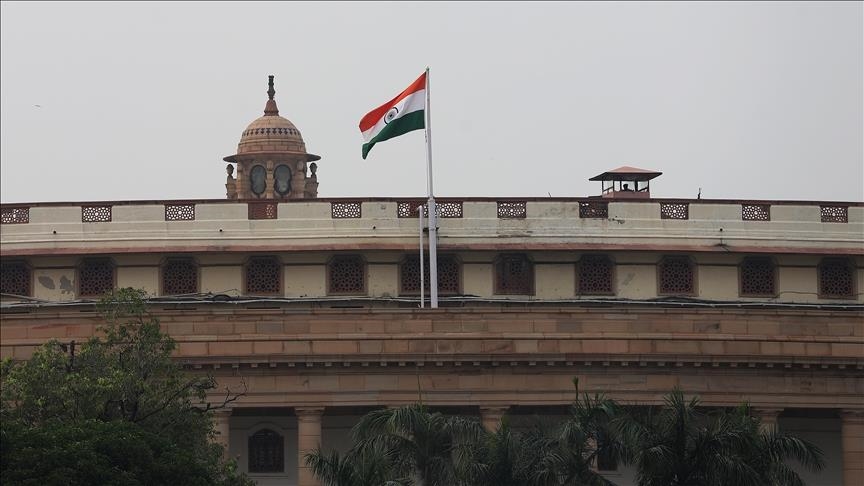

By Anadolu Agency
NEW DELHI
In a tit-for-tat move, India on Tuesday ordered a senior Canadian diplomat in New Delhi to leave the country after Canada expelled a “top Indian diplomat” in connection with the June assassination of Canadian Sikh leader Hardeep Singh Nijjar.
“The High Commissioner of Canada to India was summoned today and informed about the decision of the Government of India to expel a senior Canadian diplomat based in India. The concerned diplomat has been asked to leave India within the next five days,” the Indian Foreign Ministry said in a statement on Tuesday.
It said the decision reflects the “Government of India’s growing concern at the interference of Canadian diplomats in our internal matters and their involvement in anti-India activities.”
Earlier in the morning, India rejected allegations of its involvement in any act of violence in Canada, calling them “absurd and motivated,” and urged the Canadian government to take “prompt and effective legal action against all anti-India elements operating from their soil.”
The statement by India’s Foreign Ministry came after Canadian Prime Minister Justin Trudeau said Monday that there are “credible allegations” that the government of India was behind the shooting death of Sikh leader Hardeep Singh Nijjar in Surrey, British Columbia.
Nijjar was shot to death on June 18 in front of a Sikh temple in the city of Surrey. No arrests have been made.
“Similar allegations were made by the Canadian Prime Minister to our Prime Minister and were completely rejected,” said India’s Foreign Ministry, adding, “We are a democratic polity with a strong commitment to rule of law.”
Noting that such “unsubstantiated allegations seek to shift the focus from Khalistani terrorists and extremists” who have been provided “shelter in Canada and continue to threaten India’s sovereignty and territorial integrity,” the ministry said the “inaction of the Canadian Government on this matter has been a long-standing and continuing concern.”
“That Canadian political figures have openly expressed sympathy for such elements remains a matter of deep concern,” the statement said, adding the space given in Canada to a range of illegal activities including murders, human trafficking and organized crime is not new.
The ministry said it “rejects any attempts to connect the government of India to such developments.”
Trudeau said while addressing the House of Commons after he spoke with opposition political party leaders that “over the past number of weeks, Canadian security agencies have been actively pursuing credible allegations of a potential link between agents of the government of India and the killing of a Canadian citizen, Hardeep Singh Nijjar.”
Nijjar was a vocal supporter of independence for a Khalistani state in the Punjab region. The Indian government has repeatedly insisted that Nijjar was a terrorist – a label his supporters denied – and at the recent G-20 summit in New Delhi, Prime Minister Narendra Modi chided Trudeau for allowing Sikh separatist protests in Canada.
Foreign Affairs Minister Melanie Joly said that Canada expelled a “top Indian diplomat” and expects India’s full collaboration “to get to the bottom of this.”
According to reports, the diplomat was Pavan Kumar Rai, the head of New Delhi’s Research and Analysis Wing (RAW), India’s foreign intelligence agency, in Canada.
Relations with India were already strained to the point that two weeks ago, the Canadian government postponed a trade mission to India slated for Oct. 9.
Prime Minister Modi this month had conveyed his “strong concerns” to Trudeau about the “continuing anti-India activities of extremist elements” in Canada. Modi met Trudeau on the sidelines of the G-20 summit in New Delhi.
We use cookies on our website to give you a better experience, improve performance, and for analytics. For more information, please see our Cookie Policy By clicking “Accept” you agree to our use of cookies.
Read More